Security Forum
ISIS and Syrian refugee crisis dominate talks at Halifax International Security Forum
The weekend was full of dialogue and debate as global leaders gathered to talk security around the world in light of recent events
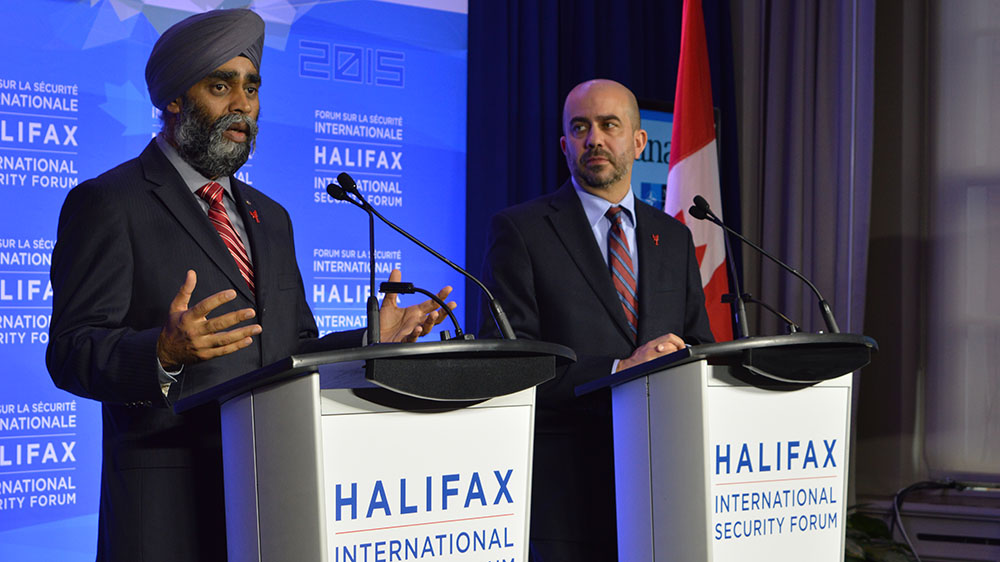
caption
(Left to Right) Minister of National Defence Harjit Sajjan and Peter Van Praagh speaking at a press conference during the forum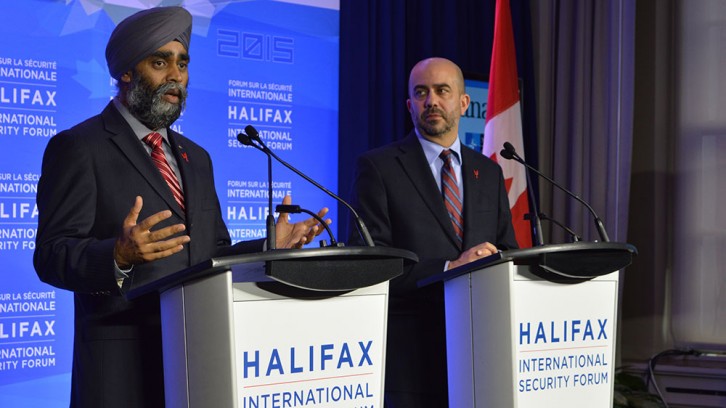
caption
Minister of National Defence Harjit Sajjan (left) and Peter Van Praagh (right) speak at a press conference during the forumAround 300 representatives from over 60 countries gathered in Halifax this weekend to discuss security in the western world in reaction to recent terrorist attacks in Paris and Mali.
These events shaped many of the talks at this year’s Halifax International Security Forum (HISF) – fueling discussion on radical Islamic terrorism, the fight against ISIS and the ongoing Syrian refugee crisis.
Refugee crisis
At the forefront of the conference was the ongoing response to Syrian refugees. Mark Hetfield is the president and CEO of the Hebrew Immigrant Aid Society, a U.S. international migration and refugee resettlement agency. He described the refugee crisis as the biggest crisis of our lifetimes.
“The international community needs to step in and really offer substantial assistance to these countries,” he said on Saturday. “What Canada has offered has been tremendous, with 25,000 [refugees]. They only usually take… 7,000 refugees per year, so to take 25,000 Syrians by the end of the year, that’s an amazing act.”
However, many Canadians disagree. The results of an Ipsos poll released on Saturday indicate six in 10 Canadians disagree with the government’s plan to resettle 25,000 refugees by the end of the year. Security was the primary concern among Canadians.
Dr. Janice Gross Stein, the founding director of the Munk School of Global Affairs at the University of Toronto, said on Friday “25,000 is a small number when they’ve been pre-screened by the United Nations and again by our security.”
On Friday, CBC reported the Canadian government would announce the specifics of their plan on Tuesday to bring 25,000 refugees to Canada by the end of the year.
U.S. response
The U.S. government is still in the process developing its response to the crisis, but Senator Tim Kaine of Virginia voiced support for those fleeing from the Islamic State.
“We have an enemy and the enemy is ISIL (Islamic State of Iraq and the Levant, another word for the Islamic State),” Kaine said on Saturday. “The enemies are not the refugees fleeing from ISIL.”
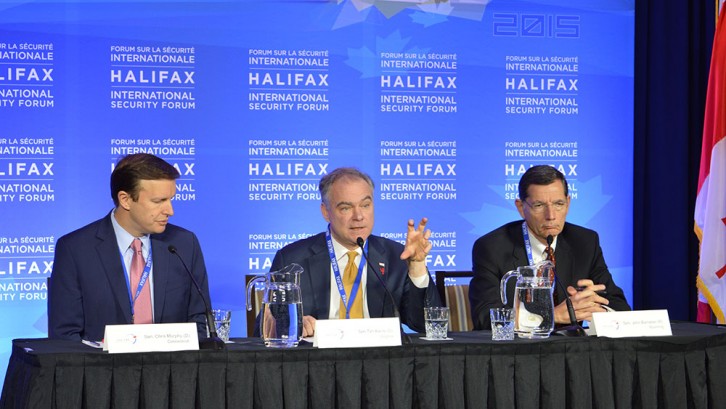
caption
(Left to Right) Senators Chris Murphy, Tim Kaine and John Barrasso served as members of the United States congressional delegation to the forumCanada’s Minister of National Defence, Harjit Sajjan, acted as host of the security forum. While he would not comment on the details of the refugee plan, he did affirm Prime Minister Justin Trudeau’s strategy to withdraw all CF-18s from their combat role against the Islamic State.
“Security threats can be dealt with in different ways,” Sajjan said on Sunday. “But that does not mean that you stop the fight. We are going to be taking the fight to ISIS and how we do it, we work as part of a team, we don’t work alone.”
On Friday, Sajjan said Canada and the U.S. need to work together to ensure they can use every skill set each country brings to the table.
The U.S. congressional delegation spoke of the country’s close relationship with its northern neighbours on Saturday.
“Canada is our number one trade partner and that’s not lost on anyone in Congress or here,” said Senator Tim Kaine of Virginia.
After a meeting with Sajjan earlier in the weekend, the delegation seemed open to the Liberal government’s new vision of Canadian foreign policy in the Middle East.
“Every country has limited resources and it’s a question within a coalition about how you best apply your expertise and resources to the fight,” said Senator Chris Murphy of Connecticut.
If we break the rules, how can we get others to follow them?
A topic that circulated throughout the conference was how western countries deal with threats – such as Islamic State – that refuse to follow conventional rules of warfare.
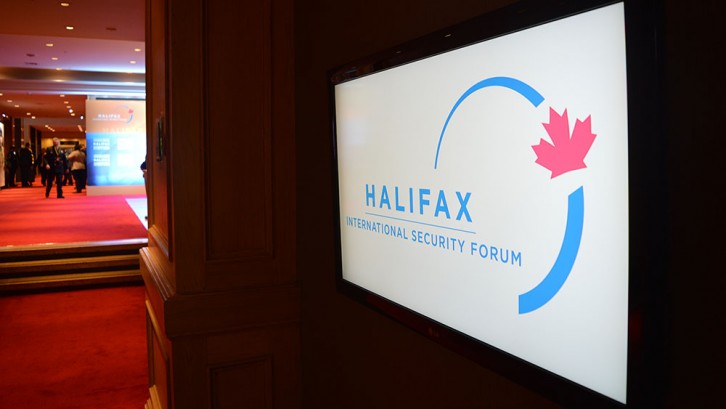
caption
The Halifax International Security Forum was held from Nov. 20 – Nov. 22The question of whether western governments should follow international law when dealing with the threat of Islamic terrorism was raised numerous times during the conference.
“None of our adversaries are willing to play by our rules,” said Jonathan Tepperman, the managing editor of Foreign Affairs magazine on Saturday. “I think many of them are doing as well as they are precisely because they are rejecting our rules.”
For military officials, at least among those at the conference, the answer was a resounding no.
“If we are not consistent in protecting the rules and the principles, then it will be very hard for us to ask anyone else to stick to the rules,” said Gen. Petr Pavel, the chairman of the military committee for NATO on Saturday.
About the author
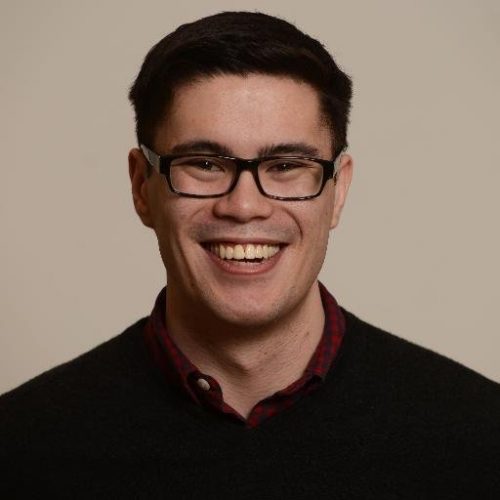
Alexander Quon
Alexander Quon is a freelance journalist from Saskatchewan with an interest in political reporting and data journalism. He's currently working...

